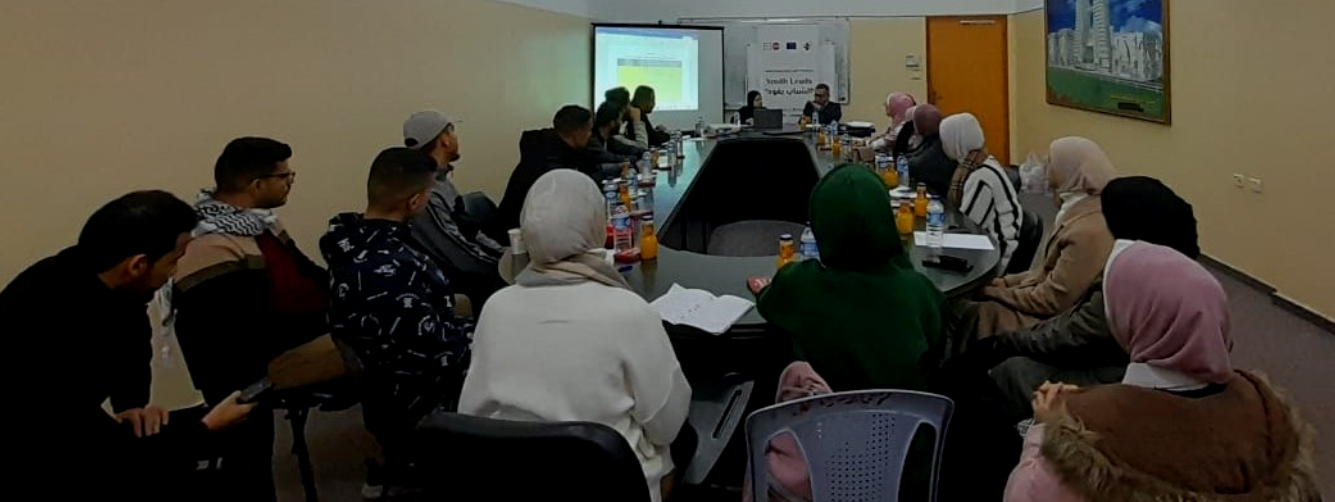
Ramallah –The local committee for the “Tajawoob” project in the Qalqilya-area village of Azzoun recently held a roundtable meeting as part of the advocacy and lobbying campaign in cooperation with MIFTAH. The meeting entitled: “Promoting social accountability to improve achievement levels and to reduce violence,” was aimed at prompting the community into developing mechanisms for community accountability for educational institutions in order to improve the levels of academic achievement and to reduce violence.
The meeting included experts in education, civil society representatives, principals of schools and a number of teachers and counselors. Qalqilya governor Rafe’ Rawajbeh and Azzoun mayor Nimer Odwan in addition to Khader Odeh, deputy director of education, all attended.
Dr. Abdel Kareem Daraghmeh from the Najah University‘s “Tamayuz” Center spoke, commending the initiative and sharing his center’s experience in reviving the role of the university in contributing to the subjects of accountability and community participation.
Tubas Director of Education, Dr. Reema Daraghmeh then spoke about her experience in promoting community participation towards improving the learning process. Abdallah Jarrar, from “Ibda Al Mualim” Center also spoke about the experiences of 12 areas in terms of reviving the role of community accountability in the education sector. He highlighted how important it is for the community to know about the areas and aspects that call for accountability. On his part, Professor Naim Al Ashqar stressed on the importance of pressuring decision makers to implement policies and laws on education in order to safeguard the achievements so many people fought for.
This was followed by a presentation from Hassan Shbeitah, committee coordinator, on the Tajawoob project and the initiative, highlighting their significance and the different stages of the project, offering valuable information and indicators used by the committee in launching the initiative.
Dr. Mohammed Matar, a committee member, spoke about the low academic achievement levels and the high levels of violence, stressing on how important it is for everyone to participate in confronting these challenges, which are a threat to the future of education.
Ghada Odwan then presented the most significant recommendations from the workshop, which stressed on the need to develop the initiative in a way that would include the right of the community to participate in accountability sessions on education and to take a responsible role in holding parties accountable in order to improve educational levels.
The meeting also allowed citizens to voice some of their concerns to officials. These included the curriculum, the weak academic abilities of students, especially in subjects such as math, the significance of extracurricular activities and organizing school competitions.
The participants stressed on the need for the committee and the community to stay connected and to formulate a plan to overcome the weaknesses in some subjects, in addition to increasing the level of creativity among students. They also stressed on the need to put in place mechanisms for reducing violence.
The participants then addressed a number of obstacles, calling for solutions for them, including the centrality of decision-making, the lack of confidence and the poor skills and expertise of some committee members. They mentioned how students hated school and the educational system as a whole, the overcrowded classrooms and the lack of communication between the parents and the school.
The attendants expressed their hope that their messages had reached the relevant officials, adding that they were able to develop a mechanism for accountability for most of the issues proposed, commending the Azzoun committee initiative. Among other things, the meeting was also an opportunity for networking between the local committee and experts in the educational sector in addition to representatives in the various educational institutions.







